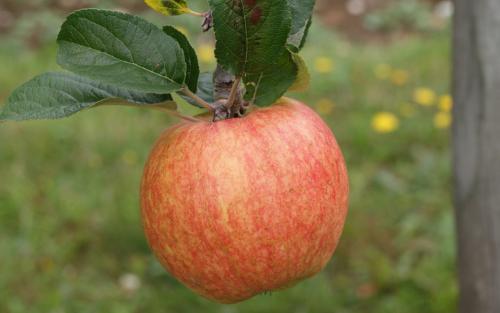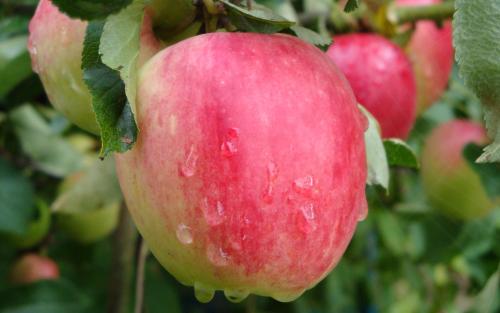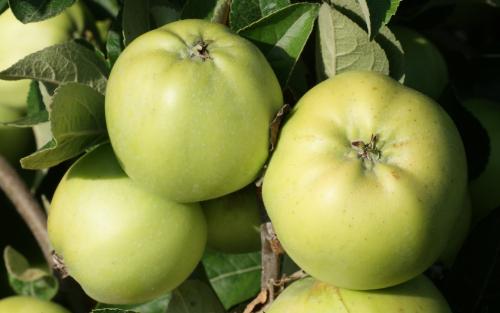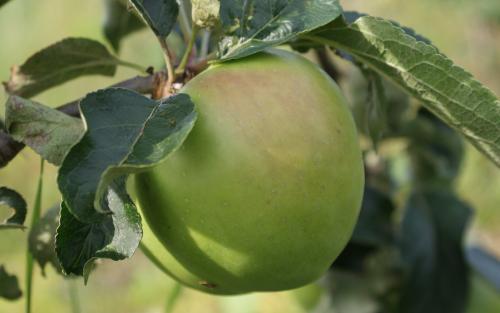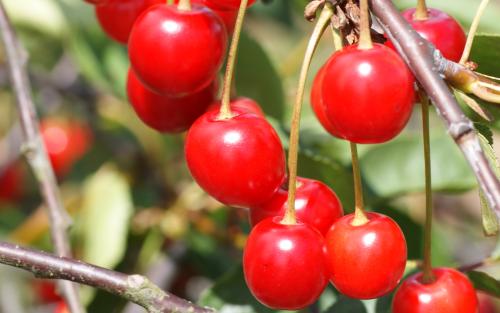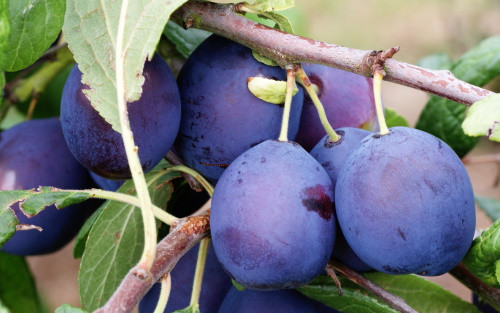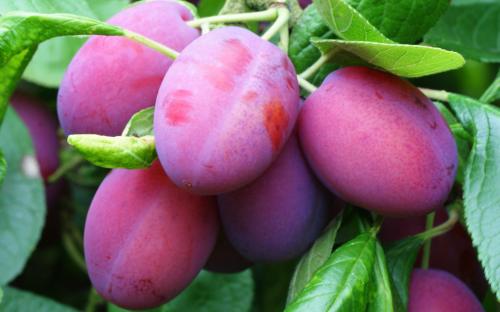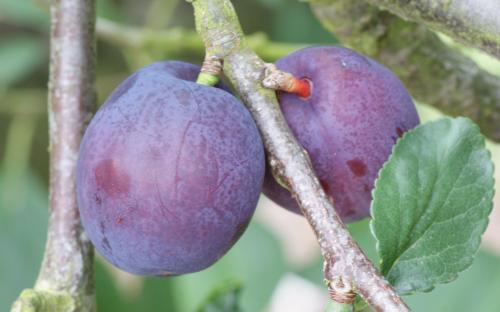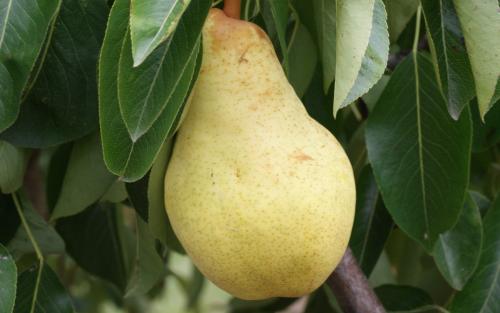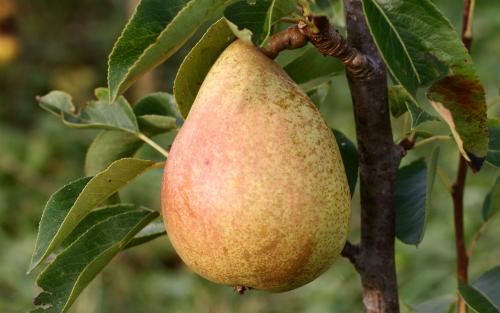Top 10 fruit trees for wet and cold UK climates
There is no doubt that to get the best and sweetest flavours from temperate fruit trees you need sun, warmth, and shelter. It is perhaps not surprising that Kent, in the far south-east of the UK is known as the garden of England, famous for its apples, plums, pears and cherries.
However many areas of the UK have less benign climates. If you live in the west of the UK, particularly Devon and Cornwall, Wales, Cumbria, and north-west Scotland you are likely to find rainfall may be undesirably high (even though temperatures are often quite mild). Altitude is also a problem for fruit trees, so growers in the Pennines, and highland areas of Wales and Scotland will experience low light levels and low average temperatures.
Fortunately there are plenty of really good-tasting fruit trees that can tolerate and thrive in areas where wind and rain are more frequent than sun and warmth. Look for earlier ripening fruit varieties, and also fruits that are adapted for cooking rather than eating fresh.
1st Apple trees - Bardsey
Buy Bardsey dual-purpose apples hereThe Bardsey apple tree was discovered on a windswept island off the coast of Wales in 1998, and has quickly become popular with growers in difficult climates. The tree is also very disease-resistant.
Bardsey apples have a pleasant mild flavour with some acidity and sweetness, and a crisp texture. They ripen in late August or early September.
2nd Apple trees - Katy
Buy Katy early-season eating apples hereKaty is an early-season apple that is able to produce reliable crops of pretty red apples regardless of how bad the summer weather is. The apples have a sharp tangy flavour and can be eaten fresh or used in pies and crumbles. The juice is particularly good.
Katy is not self-fertile, so needs to be planted with other different apple trees nearby, but it has lovely blossom and is a good pollinator for other apple trees.
2nd Apple trees - Keswick Codlin
Buy Keswick Codlin cooking apples hereThe English Lake District is one of the most difficult climates for fruit production in the UK - high rainfall, low sunshine levels, often windy, and yet fairly mild temperatures for much of the year - which are conducive to fungal infections. This is the area that Keswick Codlin hales from, and not surprisingly it is well-adapted to the local conditions.
Keswick Codlin is an early-season cooking apple, very productive, and the juicy acidic apples cook down to a stiff puree. For the best fruit size and flavours be sure to thin the fruitlets in early June.
3rd Apple trees - Grenadier
Buy Grenadier cooking apples hereWhen the going gets really tough Grenadier is a good choice. It is an early-season cooking apple, and has a reputation for producing good crops in almost any situation.
The apples readily cook down to a sharp puree.
Grenadier is also self-fertile, so you do not need another apple tree nearby - although you will still need to encourage pollinating insects to visit.
5th Cherry trees - Morello
Buy Morello sour cherry trees hereDessert cherries need sun and warmth to ripen, so are not a good choice if your climate is wet and cold. However Morello is an acid cherry, and will cope with severe climates. You can eat the cherries fresh, but they are much better used in the kitchen for making jam or cherry pie.
Crucially, Morello is self-fertile and will grow in almost any situation. It produces good quality cherries even in areas where there is not much direct sunlight.
6th Damson trees - Merryweather
Buy Merryweather damson trees hereAll damsons are hardy, but Merryweather is perhaps the hardiest and toughest. It tolerates wet cold climates and is disease-resistant and self-fertile.
The damsons can be eaten fresh when fully ripe, but it is better to pick them slighly under ripe for use in the kitchen. They have a rich astringent flavour when cooked.
7th Plum trees - Victoria
Buy Victoria dual-purpose plums hereVictoria, with its susceptibility to fungal infections, is not perhaps the most obvious choice for growing plums in difficult climates, nevertheless it turns out Victoria will thrive in almost any situation. - we have customers all over the UK growing it successfully, including in the wet and windy extreme west of Wales, and the cold and wet far north of Scotland.
It's natural vigour is a big help in dealing with difficult conditions, and it is reliably self-fertile, and the blossom has some frost resistance. And Victoria is a dual-purpose plum, so even if the plums do not ripen sufficiently to eat fresh, they will still be superb when cooked in jams, pies, and crumbles.
8th Plum trees - Herman
Buy Herman eating plums hereHerman is an early-season dual-purpose plum. It ripens in early July and can produce good quality plums even in areas where sunlight is not common.
The plums have a pleasant flavour for eating fresh, and any surplus can be used for making jam.
Herman was developed in Sweden. It is self-fertile and reliable in almost any climate.
9th Pear trees - Williams
Buy Williams dessert pear trees hereWilliams is a classic English pear, also known as Bartlett, with a good flavour and quite easy to grow. It is one of the best pear varieties to choose if your climate is less than ideal, and being an early-season variety it can be productive even in areas where sunshine levels are low.
10th Pear trees - Invincible
Buy Invincible dessert pear trees hereAs the name suggests, Invincible was developed to tolerate difficult growing conditions, and is a good choice for areas where late frosts are possible. Having said that, as with all pears it does best in a sheltered location.
Despite its hardy constitution there is no compromise on flavour, this is a good quality dessert pear.

